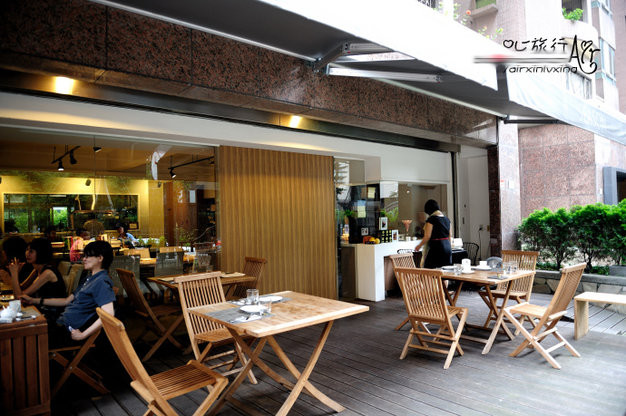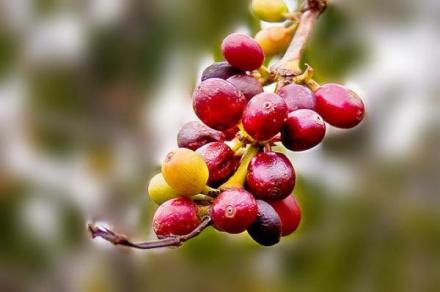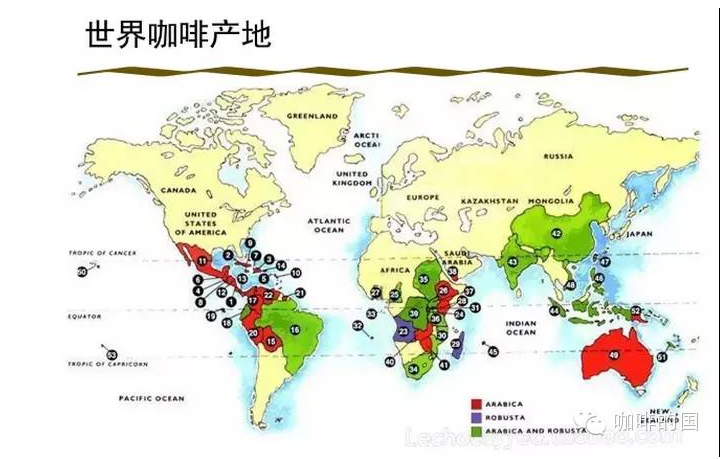Chinese coffee is no longer just to start a business, see what other people are playing abroad?

Since Premier Li Keqiang drank a cup of coffee at 3W, there has been an upsurge of entrepreneurial coffee in the country. Is it possible that coffee can only be branded as "entrepreneurship" now? Let's take a look at what ideas are being played in the foreign coffee industry.
Popular milkshakes make small Australian cafes popular
(delicious food is king.)
Recently, P â tissez, a small cafe in Canberra, the Australian capital, caught fire. Although it has been open for only seven weeks, its unique dessert has gone viral on social media platform Instagram, attracting hordes of customers to taste it in the store.
According to the Canberra Times (The Canberra Times), Anna Petridis and his mother Gina teamed up with two French dessert chefs, Ismael and Astrid Toorawa, to open the coffee shop.
Petridis previously told the Canberra Times: "I want to make a really delicious milkshake, the kind of milkshake that extremely exaggerated people can't help taking pictures before eating." Photo-upload Instagram,P â tissez's milkshake has become a hit! Recently, mother and daughter were also invited to participate in the Australian TV cooking show "My Kitchen Rules".
But in the final analysis, delicious food is the king. The milkshakes on sale at P â tissez are called "epic freak" and come in four flavors (chocolate fudge brownies, salt caramel, Nutella chocolate sauce & crackers, French vanilla), each retailing for $9.50.
Because milkshakes are so popular, the small cafe is now in short supply. "sometimes customers have to wait an hour for a vacant seat and 45 minutes for a fresh milkshake," Petridis said. It does take us a long time to make a milkshake. We make all the ingredients, including brownies and marshmallows. "
P â tissez explained on its Instagram: except for Nutella chocolate sauce, all the ingredients in the milkshake are homemade, so they can only be supplied in limited quantities every day.
Israeli financiers set up an one-dollar coffee chain Cofix, which has been listed backdoor
(cheap coffee also has a bright future.)
In 2011, thousands of Israelis took to the streets to protest that the cost of daily necessities such as food and houses was too high. The result: in 2013, the authorities promised to cut prices. But even if the government allows more goods to be imported to promote competition, the process is still slow. According to the central bank, food prices in Israel rose 39% between 2003 and 2014, far exceeding the overall price index.
Avi Katz, owner of private equity fund Hagshama (pictured below), launched the Cofix coffee and snack chain at the end of 2013, following the example of dollar shop (a chain that sells cheap goods at a price of $1 per unit), Reuters reported. There are already 80 stores in Israel, mainly in busy downtown neighborhoods, and plans to expand the number to 120 this year.
Cofix's philosophy is simple: coffee and snacks such as sandwiches and open-ended pies each of 5 shekels ($1.30) can break even only if each store sells more than 1000 dollars a day. Before Cofix, the usual prices in Israeli coffee shops were $3 to $4 for coffee and $5 to $10 for sandwiches.
According to Avi Katz, food in Cofix stores is for takeout only, with daily sales of about 2000, with an average of only two kinds of food per customer. Such rapid success has led many stores to follow suit, forcing more chain stores to cut prices. "as long as it's a good idea, you can't avoid competition," he told Reuters. "
In mid-June, Cofix went public through Agri Invest through a backdoor listing and merged its operations. The company hopes to have sales of around 200 million shekels (330 million yuan) in 2015. The company's supermarket business, Super Cofix--, a mini-supermarket, sells items for no more than 5 shekels, and he plans to build three more this year. Avi Katz said that if the company had not invested in opening a supermarket last year, it would have made a profit last year.
Although the share price has risen 15 per cent in the past two sessions, the company's share price has fallen 7 per cent since its listing, suggesting that investors are still skeptical about whether the business model will work.
Avi Katz wants to expand its dollar coffee shop to London and Moscow, but it seems impossible now-a fake coffee shop called Caffix recently opened in London for a cup of coffee for a pound.
Silicon Valley high-end artisanal coffee Blue Bottle completes its latest round of financing of $70 million
(handmade coffee against Starbucks)
With only 19 stores, Blue Bottle Coffee, valued at hundreds of millions of dollars, is challenging Starbucks' dominance with fine-brewed artisanal coffee.
Blue Bottle, Silicon Valley's favorite high-end coffee retailer, has just completed a new $70 million round of financing.
Blue Bottle is arguably the most successful example of commercializing and operating artisanal cafes on a large scale, and some people believe that the financing is intended to engage in a real confrontation with coffee shop giant Starbucks. Although Blue Bottle declined to disclose the valuation of the company in this round, startups that can raise that level are typically valued at hundreds of millions of dollars.
The financing was led by Fidelity, the largest fund manager in the United States, with hedge fund Tetragon Financial Group participating, and existing venture capital shareholders Index Ventures, True Ventures and Google Ventures also participated in this round of investment. The company also plans to raise an additional $5 million from independent investors.
Blue Bottle has raised a total of $46 million in two previous rounds of fundraising. the last round was led by Wall Street's Morgan Stanley last year, and current investors include Google Ventures, Index Ventures (also an investor in Just Eat, Moleskine and Sonos), True Ventures (an early riser in Fitbit), U2 lead singer Bono, Oscar-winning supporting actor Jared Leto, professional skateboarder Tony Hawk, and Instagram founder Kevin Systrom.
Bryan Meehan (below), executive chairman of Blue Bottle, said: "I believe capital giants like Fidelity see great opportunities. Like fast food giants Chipotle and Shake Shack, we have grown from scratch to provide consumers with better coffee and baked goods."
I wonder if Starbucks' recent launch of Zhenxuan Coffee is a response to such challenges.
Starbucks Challenger: "Cafe on Wheels" Wheelys Cafe
(why is a new model for coffee challenging Starbucks?)
As we all know, Starbucks is the absolute leader of the global coffee shop market. However, all kinds of innovative cafes continue to emerge, trying to get a piece of the huge coffee market. Among them, the "guerrilla model" adopted by Wheelys Cafe, the coffee shop on wheels, may even shake the dominance of the traditional coffee shop chain.
According to the US website PSFK, Wheelys Cafe is a mobile cafe that sells coffee and light foods on bicycles. Founded by Thomas Mazetti, he was a former executive of Studio Total. Mazetti brought many elites from Ikea, Himm and other companies to his team to develop products for Volkswagen and franchise markets. Wheelys Cafe has three advantages:
Low cost
Mazetti found that coffee at the top end of the market is always more than twice as expensive as regular coffee, while selling branded coffee on bicycles can significantly reduce costs, and the cost of a full-service Wheelys Cafe bike is only 10 times that of a Starbucks (taking into account equipment and licensing fees).
Save time
Because it saves time on the way to the cafe, Wheelys Cafe makes it easy to buy a selection of coffee and light snacks. And a mobile cafe with regular business hours is much more pleasing than regular stores like Starbucks. For entrepreneurs, mobile cafes have become a safer business model because of their low cost and low threshold.
Prolong the sales peak
You know, select coffee has always been a lucrative market with great potential, and Wheelys's "cart selling" business model can extend or even create peak sales periods by moving on reliable routes, for example, when the sales speed of location A slows, it means that the peak of passenger flow has shifted to location B.
Source: Hua Lizhi
Important Notice :
前街咖啡 FrontStreet Coffee has moved to new addredd:
FrontStreet Coffee Address: 315,Donghua East Road,GuangZhou
Tel:020 38364473
- Prev

International Coffee Day, let's talk about Yunnan beans.
Jiaxiang Guide: October 1, 2015, as the world's first coffee day, China's coffee industry seems to be more excited than the National Day. Although China is not yet a member of the International Coffee Organization, Yunnan Douzao is currently the fastest growing bean in China. Will Yunnan Dou lead China into the world coffee industry in the near future? Wait and see ~ in China, have a cup of Yunnan
- Next

Reading the third Wave of Coffee from Ye Jia Xuefei's past Life and this Life (part two)
The last Wechat simply mentioned that in the counter-cultural flavor wheel of the third wave of coffee, nearly half of them are fruit flavor symbols. It is not difficult to find common fruits, such as lemons, oranges, this kind is easily reminiscent of Yejia Xuefei, followed by grapes, tropical fruits, berries, it is easy to think of Kenya, sun Yega, Hara.
Related
- Can lightly roasted coffee beans be used to extract espresso? How finely should you grind high-quality coffee beans to make Italian latte?
- What is the difference between the world's top rose summer coffee and Yejia Shefi? What are the flavor characteristics of Yega Shefi coffee and Panama rose summer?
- The ceremony is full! Starbucks starts to cut the ribbon at a complimentary coffee station?!
- A whole Michelin meal?! Lucky launches the new "Small Butter Apple Crispy Latte"
- Three tips for adjusting espresso on rainy days! Quickly find the right water temperature, powder, and grinding ratio for espresso!
- How much hot water does it take to brew hanging ear coffee? How does it taste best? Can hot water from the water dispenser be used to make ear drip coffee?
- What grade does Jamaica Blue Mountain No. 1 coffee belong to and how to drink it better? What is the highest grade of Blue Mountain coffee for coffee aristocrats?
- What are the flavor characteristics of the world-famous coffee Blue Mountain No. 1 Golden Mantelin? What are the characteristics of deep-roasted bitter coffee?
- Can I make coffee a second time in an Italian hand-brewed mocha pot? Why can't coffee be brewed several times like tea leaves?
- Hand-brewed coffee flows with a knife and a tornado. How to brew it? What is the proportion of grinding water and water temperature divided into?

